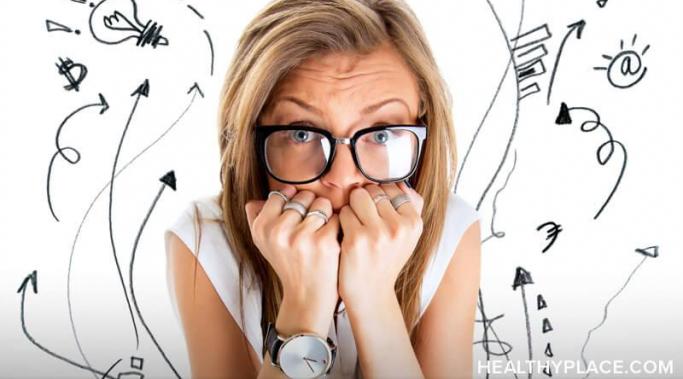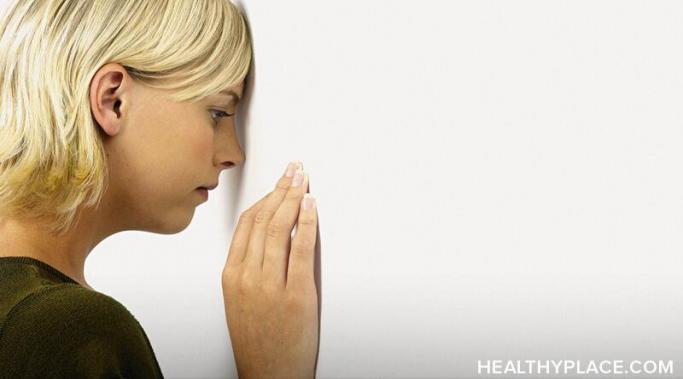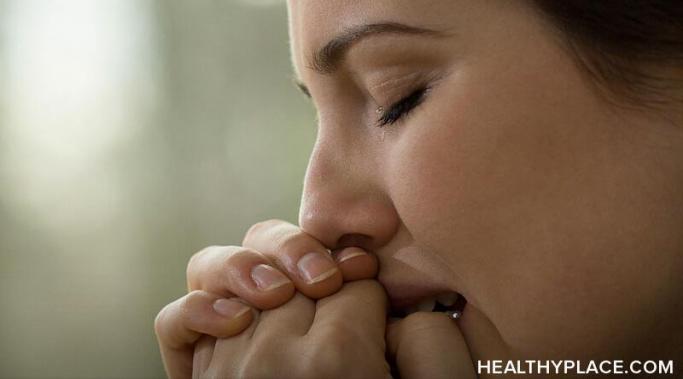I've noticed that slowing down helps my anxiety. When I am extremely busy, the pressures of having a demanding schedule and multiple deadlines begin to weigh on me and contribute to my anxiety. The busier my schedule gets, the more I feel anxious daily. Unfortunately, this becomes evident as I start having a hard time sleeping, concentrating, and focusing on day-to-day responsibilities. In these situations, I need to help my anxiety by slowing down.
Living with Anxiety
I've found that grief and anxiety go together alongside the feelings of sadness, anger, regret, loneliness, and depression. However, in my education and throughout what I have learned, the relationship between grief and anxiety was not usually addressed.
When I'm anxious, one of the hardest things to do is to stop overthinking. After all, this seems to be what anxiety is about, beyond, of course, the physical symptoms. Anxiety causes you to worry about what you are experiencing stress about. Therefore, you end up overthinking about the situation and about various scenarios. It's hard to stop overthinking.
When you are constantly anxious, it is hard to confront traumatic experiences and process your feelings from trauma. What can end up happening as a result is that you may avoid dealing with the situation. However, processing your feelings from trauma is critical.
It's hard to deal with anxiety when you're going through change. Change can feel scary and unpredictable, and even more so when you are already feeling stress and pressure in other areas of life. This is something I have experienced recently. Over the years, this anxiety trigger has been something I have worked hard on learning how to cope with. Years ago, I would find that any time any major life changes occurred, I would feel extremely anxious.
One of the problems I have found when dealing with anxiety is not knowing why I'm anxious. Overall, throughout the years, I've been able to build my resilience to stress, and as a result, I can cope more effectively when I'm experiencing a stressful situation. But, part of the problem with having an anxiety disorder is that, even if you've felt fairly well for quite some time, you can still experience a resurgence of anxiety symptoms. Even during the happiest times in my life, I've had to be aware of anxiety triggers and how they may affect me when I least expect it, even when I don't know why I'm anxious.
I have experienced anxiety and loss. It's been about five years since the loss of my father, and this year, I've been reminded that grief takes its own route and doesn't operate on a schedule -- particularly with regard to anxiety and loss.
One of the most significant symptoms of anxiety that I have struggled with has been hypervigilance. Hypervigilance pertains to being on guard and alert for threats in the environment and may result in engaging in behavior with the purpose of preventing danger.1
It's the start of a new year, and it's a good time to reflect on the previous year and the things I learned about my anxiety. It's also a good time to reflect on strategies that I used for coping with anxiety, what worked well, and what didn't. Here's how I handle anxiety in the new year.
I often find that I experience high levels of anxiety during the holidays. This can make it difficult to enjoy the holidays and to experience the season's festivities. It's also difficult to appreciate the holidays with elevated anxiety.









